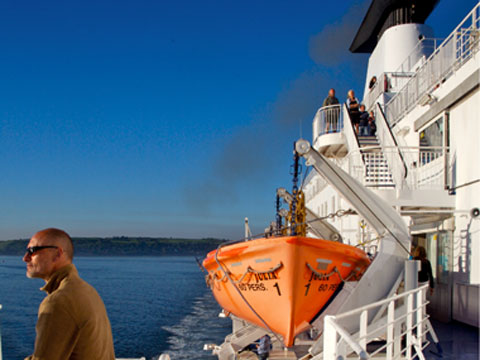A co-operative is a business owned and run by its members. Whether those members are the customers, employees or the local community, they share the profits and have an equal say in how the business is run.
With people turning to fairer, more ethical businesses they can trust, co-operatives are enjoying a renaissance. 2012 has been designated the International Year of Co-operatives by the United Nations. And, whilst the UK economy as a whole has stagnated, the co-operative sector has grown by a staggering 21 per cent. There are now over 5,400 independent co-operatives in the UK.
There is no area where this is more obvious than the green economy, the fastest growing part of the co-operate sector. Eighteen per cent of all new co-operative businesses since 2008 are in this sector.
From new local food initiatives to the surge in community owned renewable energy schemes, there are some fascinating new businesses emerging.
Take Sheffield Renewables, for example, one of a new crop of schemes set up by and for local residents to generate green power and profit from the river running through the city. Or Dunbar Community Bakery in Scotland, set up by local people to take over the town's bakery when the owners retired. Or Dulas, a fast growing worker owned green technology business in mid Wales. Or Woolclip, a co-operative of local artisan producers.
We have seen a spike in these kinds of co-operatives over the last few years, with more and more people looking into the co-operative option. Hence Co-operatives UK has developed an online support service for anyone interested starting a co-operative. As the trade association for co-operatives, we support co-operatives everyday, have unique tools and resources and are at the heart of a national network of specialist co-operative business advisers.
If you're thinking about starting an ethical or co-operative business, the online service will inspire you to take it to the next stage and provides you with some simple steps to follow. Here are five key steps to think about.
Step one - the idea
Co-operatives are businesses, not charities; they need to make a profit. Before you can think about anything, you need to determine what your business is going to sell, who is going to buy it and whether they will buy it at the price you want. This is the case whether you are selling organic vegetables to local residents, energy efficiency advice to businesses or electricity to the national grid.
Step two - the members
What makes co-operatives unique is that they are owned and run by everyday people, their members. It is the members who benefit from the profits of the business and have the responsibility of deciding its direction. So, once you know what the business will do, you need to determine who these members are. Sometimes they will be the local residents who are going to benefit from a new hydroelectric scheme. Other times it will be the employees who are going to run the business. And at other times the members may be small businesses that are working together co-operatively.
Step three - the governance
Once you're decided on who the members will be, the next step is to think about how these people will work together, make decisions, communicate and plan for the future. You need to work out how key decisions will be made in the co-operative - if there are only a few members then you may be able to make strategic decisions together but more members might require an elected board. And think about how tasks can be divided up - between marketing, finance, product development, for example - and then agree a process for reporting back. Developing and practicing good communication and democracy skills throughout the start-up process makes for a more effective and sustainable co-operative.
Step four - the money
Whatever a co-operative is doing, and whoever the members are, it's likely to require some form of cash injection to allow the business to function and grow before it generates a profit for the members. This cash injection can come from a variety of sources. Often members will invest some of their own money in the business to get it off the ground. Where money is being raised from local residents this might be small sums from each person. Where the employees are the members, this could be larger sums. In addition, most co-operatives will get a business loan to help them put money into the business and some may also be eligible for start-up grants.
Step five - the law
By this stage you'll be opening a bank account, applying for loans, looking into premises . . . As a result, many will need to adopt a more formal structure and register some sort of legal form around the business. People can become stuck at this point due to the range of legal forms available to co-operatives. But, although it's an important decision, you need to remember that the legal form is simply a vehicle to allow you to achieve what you want. Rather than getting bogged down in questions of legal form, there are many people out there who can provide professional advice, often subsidised or free.
There is, of course, much more to think about when starting a business - co-operative or otherwise. The good news is that the new online support service guides you through the main elements, giving you examples, advice and ideas at every stage.
So, really the only question is, what are you waiting for?
Giles Simon is a communications officer at Co-operatives UK, the trade association that campaigns for co-operation
Further information:
Co-operatives UK's online support centre
| READ MORE... | |
 |
COMMENT The communities taking renewable energy into their own hands A new report by Co-operatives UK and The Co-operative Group examines those investing time and money in installing solar panels, wind turbines or hydro-electric power for their local communities |
 |
GREEN LIVING Ecologist guide to ethical investments All you need to know to start putting your money where your mouth is |
 |
HOW TO MAKE A DIFFERENCE How to get community investment in green projects Many a good idea has floundered for lack of funds, but with today's models for community finance this need no longer be so... |
 |
HOW TO MAKE A DIFFERENCE The People's Ferry: reducing emissions by buying a ship How a discontinued ferry service between Swansea and Cork was reborn when locals pooled money and resources...and bought their own ship |
 |
INTERVIEW David Boyle: Let's create a new, small banking sector to fuel green economy A new book by David Boyle and Andrew Simms of the New Economics Foundation charts the rise and fall of major British brands. Matilda Lee talks to them about banking reform, brands and greening capitalism |





